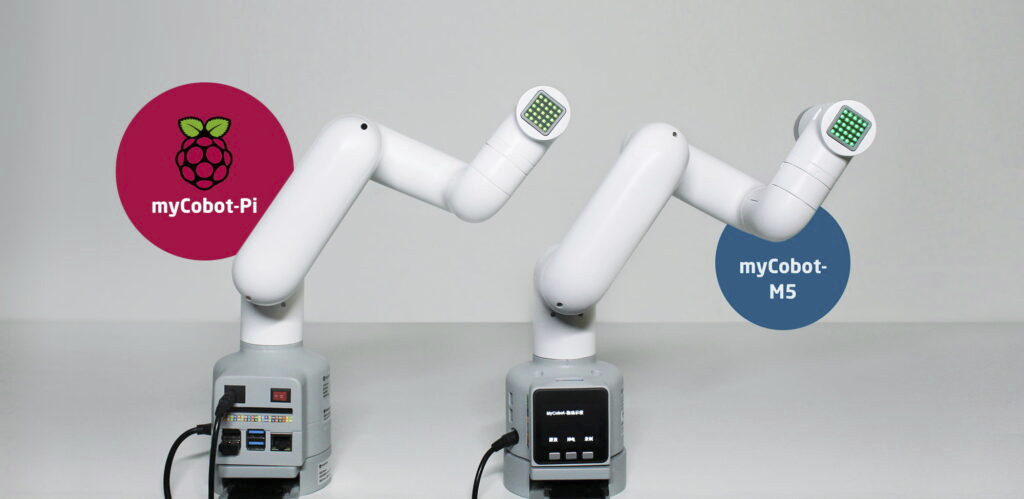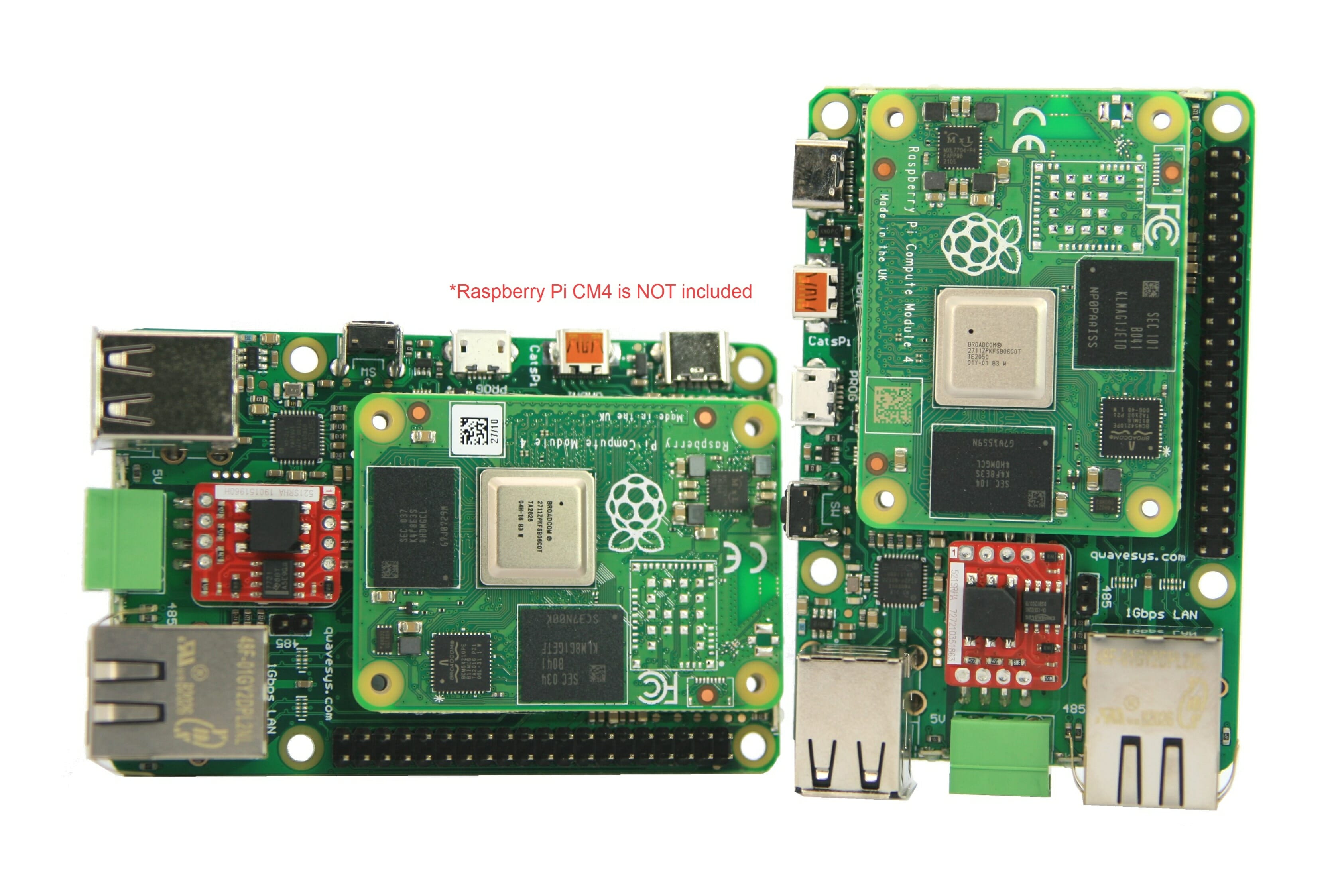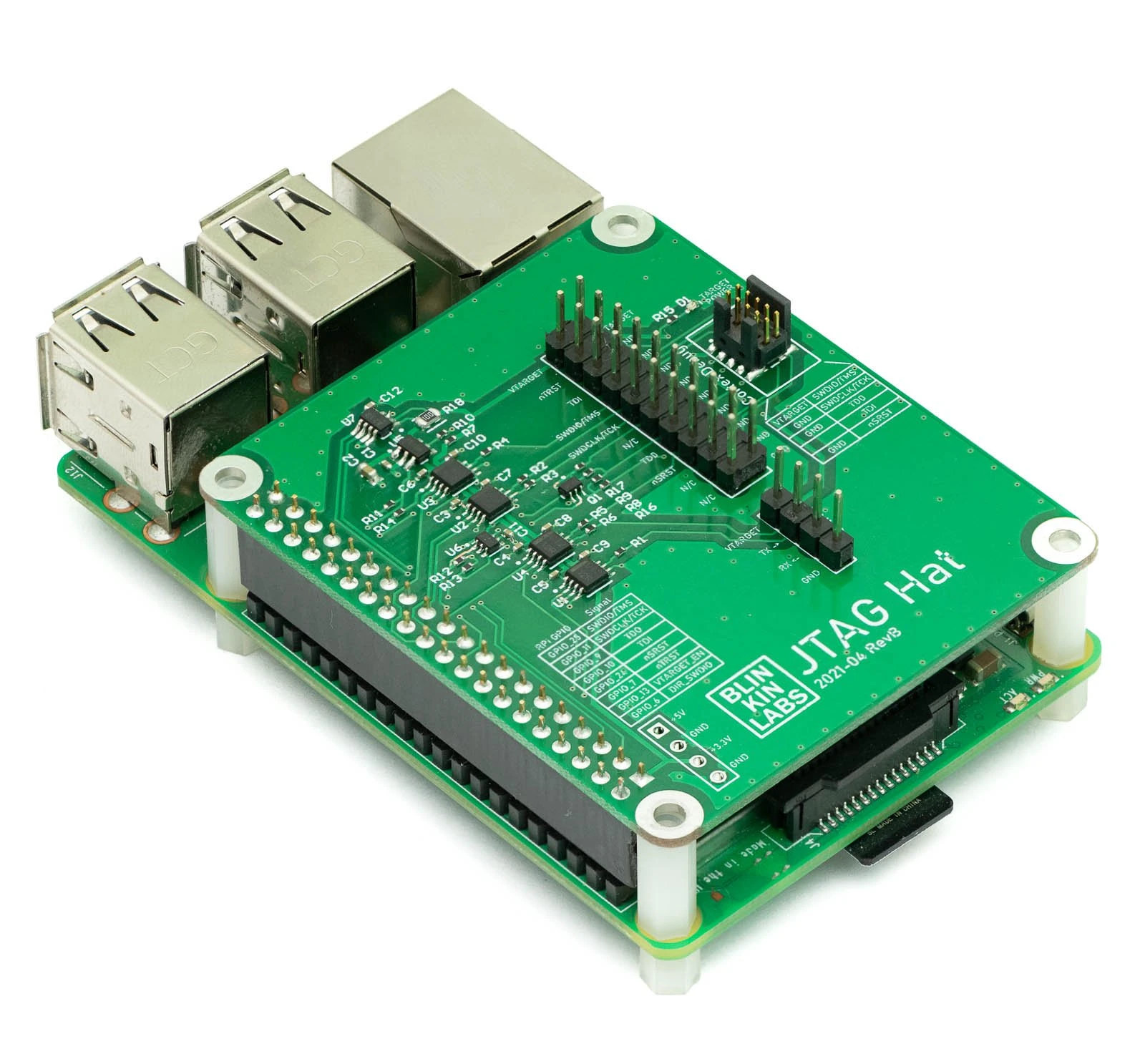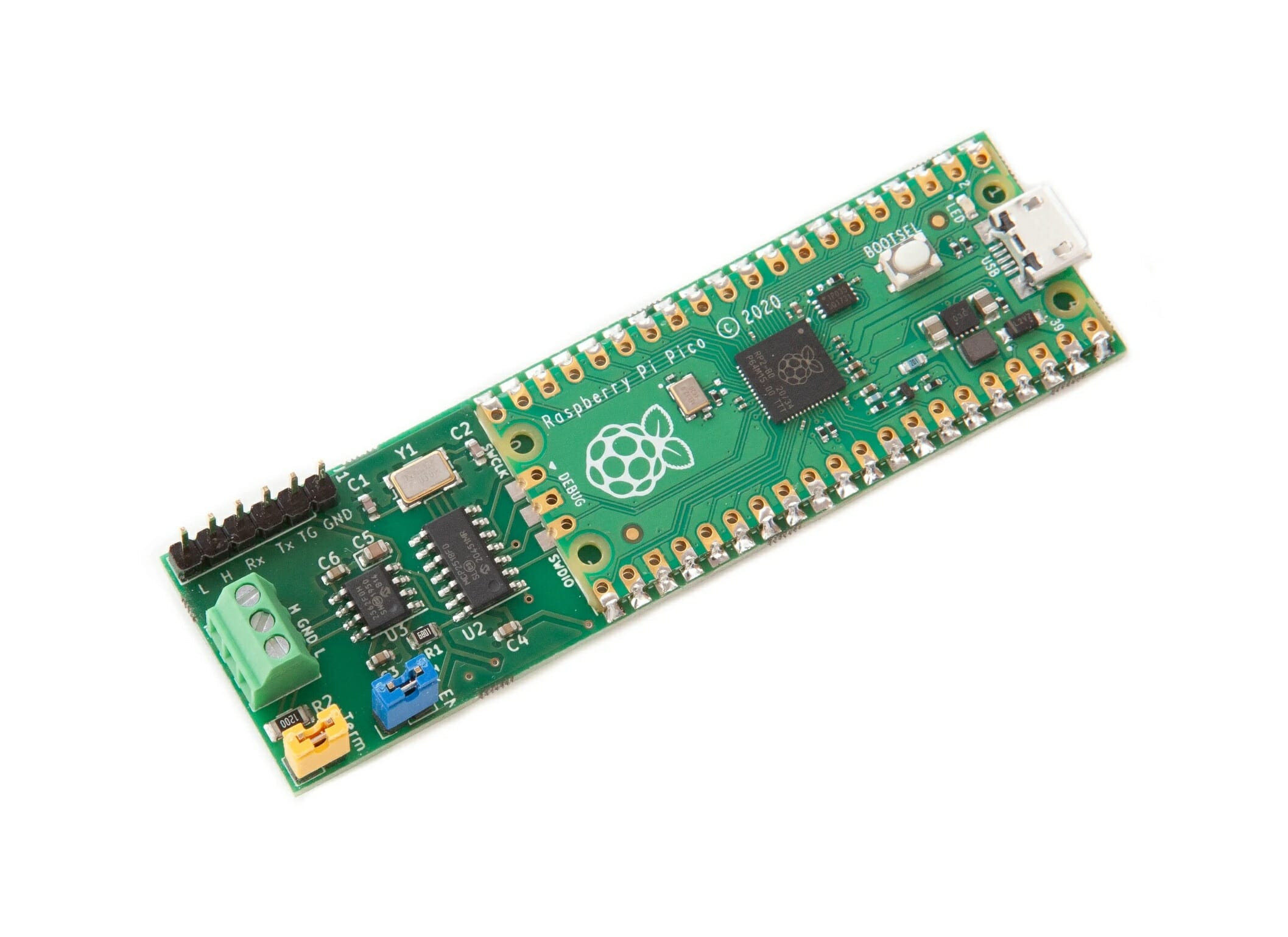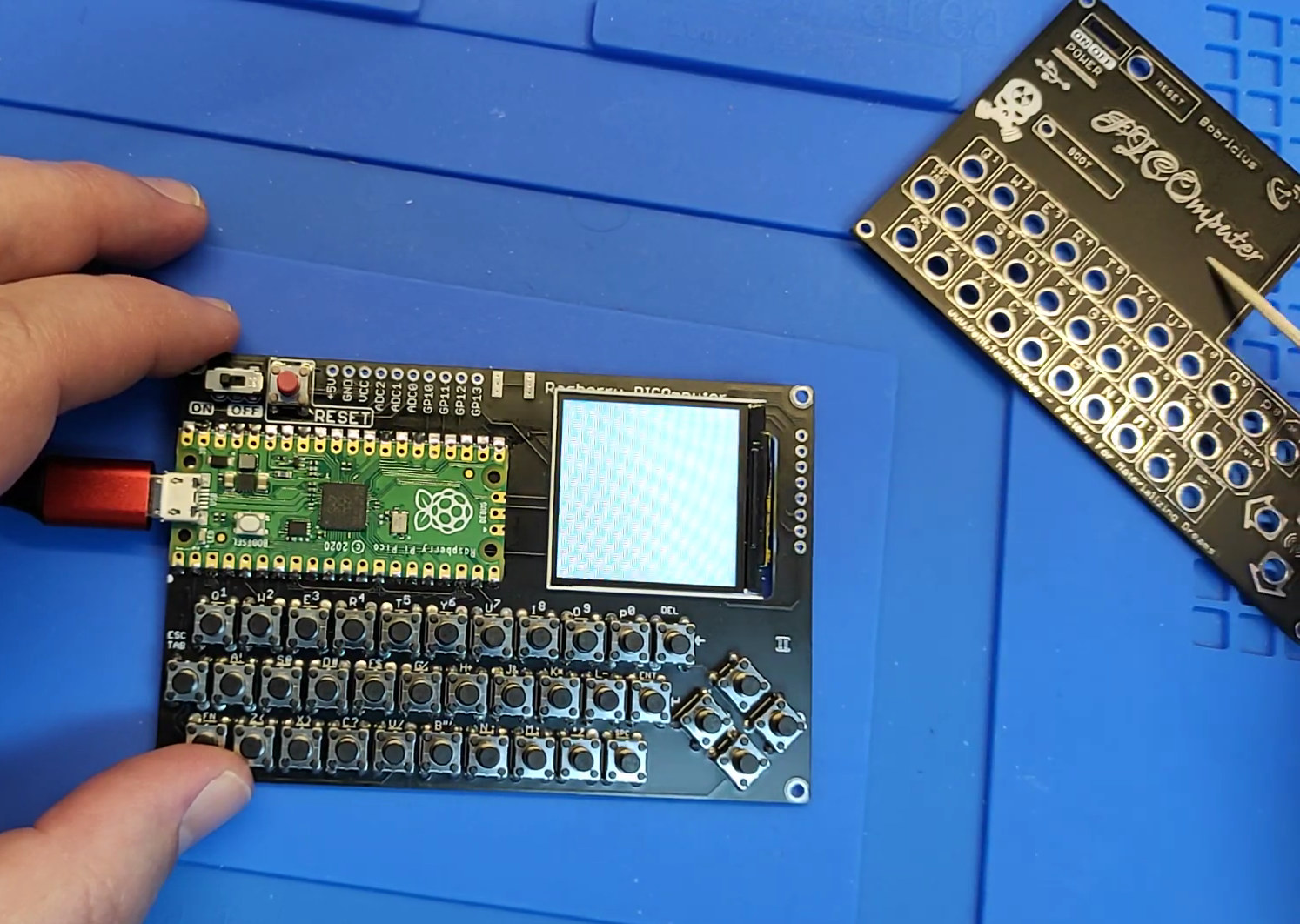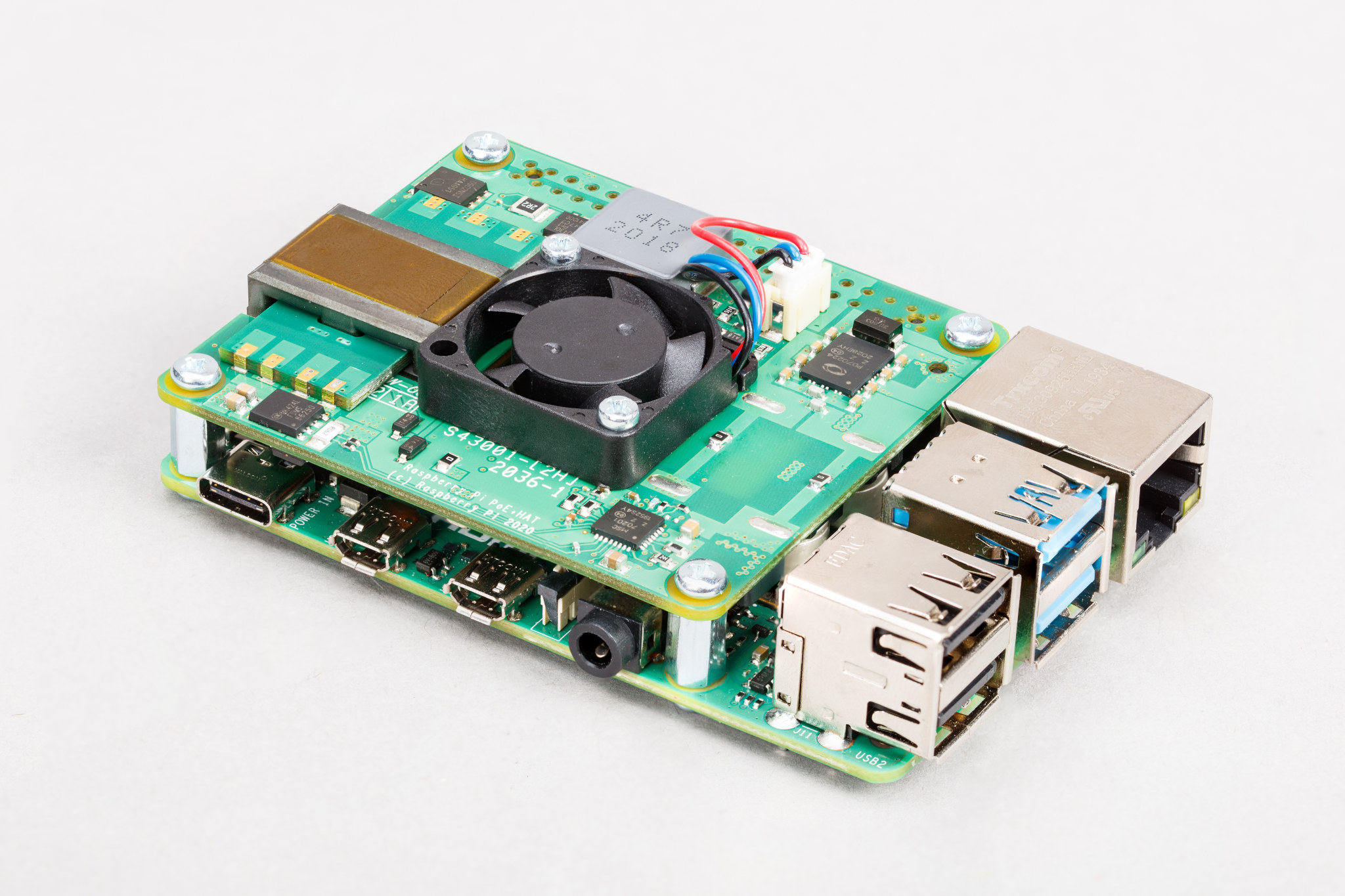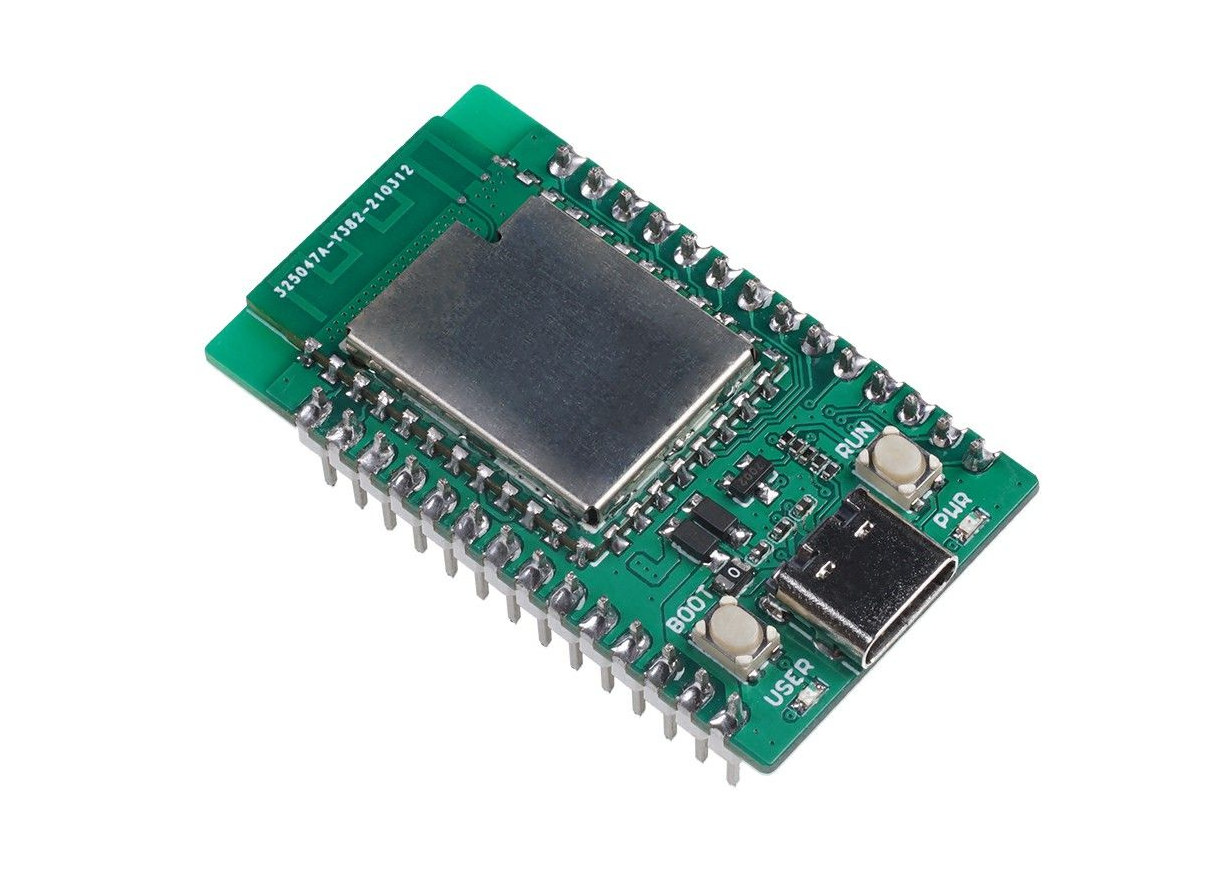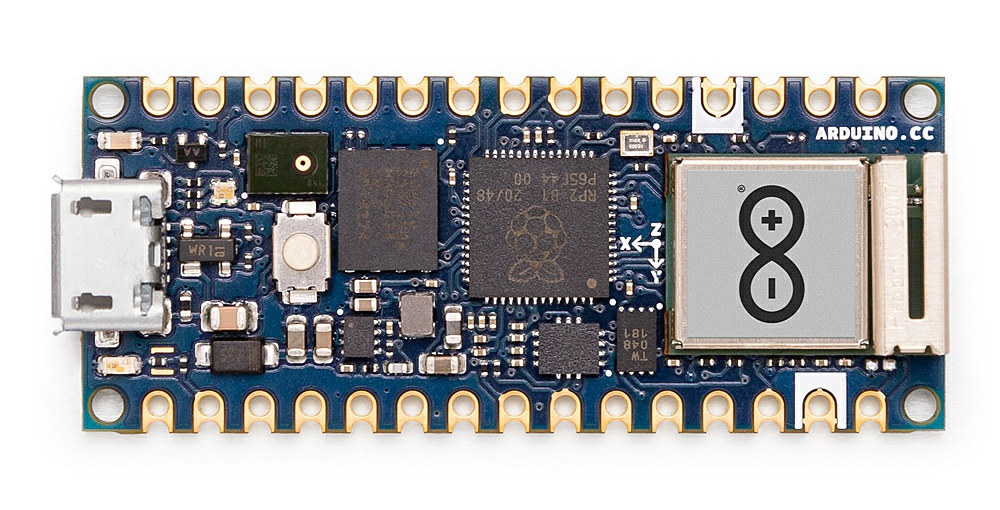Elephant Robotics’ MyCobot robotic arm was introduced last year with M5Stack Atom & Basic ESP32 modules with 6-degrees of freedom, a 250 grams max payload, available now for $599. The company has launched a new $699 version – MyCobot-Pi – with most of the same features, except for an upgrade to Raspberry Pi 4B which offers more performance and flexibility. Both versions of MyCobot arm robotic arm support accessories such as a gripper and a suction pump attachable through a LEGO connector, but while the original version – MyCobot-M5 – relies on Arduino programming, the new MyCobot-Pi runs Debian/Ubuntu and ROS operating systems with image recognition algorithms that can work with a variety of cameras. Since we’ve missed last year’s announcement, we’ll cover both models in this article. MyCobot Robotic Arm Despite the mechanical parts being the same, the specifications for MyCobot-M5 and MyCobot-Pi differ quite a lot: Controller MyCobot-M5 […]
CatsPi Industrial Lite RPi CM4 carrier board features GbE, RS485, Watchdog MCU
We’ve seen a fair deal of Raspberry Pi CM4 carrier boards, and here’s another one courtesy of QwaveSystems with CatsPi Industrial Lite board following Raspberry Pi SBC form factor/dimensions, and equipped with Gigabit Ethernet, RS485, USB ports, as well as a watchdog MCU among other interfaces and features. Contrary to what the name implies, CatsPi Industrial Lite only works with Raspberry Pi CM4 with eMMC flash, but not the CM4 Lite module since there’s no MicroSD card on the baseboard. It’s not the first Raspberry Pi Compute Module 4 carrier board with RS485, however, as we previously covered CM Hunter also including CAN and 1-wire interfaces, but QwaveSystems’ solution is more compact and mostly mechanically compatible with Raspberry Pi model B SBC’s. CatsPi Industrial Lite board specifications: Compatible SoMs – Raspberry Pi CM4 with eMMC flash only Video Output – Micro HDMI port Connectivity – Gigabit Ethernet, optional 802.11b/g/n/ac WiFi […]
JTAG Hat for Raspberry Pi eases debugging with OpenOCD
Low-level debugging can be performed with a JTAG debugger and OpenOCD open-source software, but since not everybody may have a JTAG debugger at home, some have reverted to using the Raspberry Pi as a JTAG debugger, and you’ll find instructions for cabling and installing the software on the Internet. Matt Mets of BlinkinLabs have been using the Raspberry Pi SBC and OpenOCD to debug Arm-based microcontroller boards for a while, but found it to be a pain to find jumper wires and look up the pin-outs manually each time. So he designed a JTAG Hat with properly labeled 20-pin .1″ and 1.27mm Cortex debug connectors to speed up the process. The expansion board also adds level-shifting buffers to interface with targets running at 1.8-5V, transistor-based power reset pins, a power switch for optionally supplying 3.3V to the target, a voltage/current sensor for measuring the target power consumption, and a buffered […]
CANPico open-source board adds CAN Bus to Raspberry Pi Pico
Canis Labs’ CANPico board adds a CAN bus to the Raspberry Pi Pico. The open-source hardware board can then be used as a CAN adapter connected to a host computer The company also provides an open-source MicroPython SDK, as well as a pre-built firmware image to quickly make it started, making it possible to easily control or monitor the CAN bus using Python. CANPico specifications: MCU – Raspberry Pi Pico with RP2040 dual-core Cortex-M0+ microcontroller CAN interface through 3-pin terminal block implemented via: Microchip MCP2517/18FD (SPI) CAN controller with 2Kbyte buffer space Microchip MCP2562FD CAN transceiver. Misc Jumpers to connect a standard 120Ω CAN bus termination resistor and for disabling transmit access to the CAN bus 6-pin header for a logic analyzer or oscilloscope to see what’s happening on the bus Dimensions – Approx. 75 x 24mm The MicroPython SDK for CANPico contains two major APIs with CAN and CANHack. […]
PICOmputer connects Raspberry Pi Pico to QWERTY keyboard, display, and optional LoRa module
Peter Misenko (aka Bobricius) has found an interesting use case for the Raspberry Pi Pico board with its PICOmputer, a compact terminal with a QWERTY keyboard, a small IPS display, and even footprint for an RFM95 LoRa module that would allow messaging/texting over LoRaWAN. Note the open-source hardware project is only offered as a kit with either the main board only, or the main board plus a gold or silver front panel, all without components, but fully assembled units are out of stock at this time. So read on, if you’re ready for some soldering and even some rework of the PCB, more on that latter. PICOmputer key features and specifications: Compatible with Raspberry Pi Pico board Storage – MicroSD card slot Display – Three types supported: 1.3-inch ST7789 IPS 240×240 display via 12-pin flex cable 1.54-inch ST7789 IPS 240×240 display via 12-pin flex cable ST7789 IPS 240×240 display via […]
New Raspberry Pi PoE+ HAT handles up to 25.5 Watts
The Raspberry Pi Foundation has just announced the Raspberry Pi PoE+ HAT compliant with 802.3at (aka PoE+) and 802.3af standards and support for up to 25.5 Watts input. It will replace the Raspberry Pi PoE HAT introduced in 2018 which was limited to 802.3af standard with a maximum of 15.4 Watts input and will become available around mid-June for $20 plus taxes and shipping. Raspberry Pi PoE+ HAT specifications vs PoE HAT. Besides supporting 802.3at standard with a higher current/more power, the new PoE+ HAT also adds a current sensor and relies on a planar transformer instead of a wire wound transformer with the former being more compact and efficient. The brushless fan is controlled by I2C and helps the processor on the Raspberry Pi 3/4. You may need the latest version of the Raspberry Pi OS for the new PoE+ HAT to work properly. While the Raspberry Pi PoE+ HAT […]
A compact Raspberry Pi RP2040 WiFi board – Meet $12.95 Wio RP2040 mini
Seeed Studio has launched another Raspberry Pi RP2040 WiFi board with the compact Wio RP2040 mini development board that provides a cheaper and more compact alternative to ESP32 based Pico Wireless carrier board and Arduino Nano RP2040 Connect, albeit at the cost of providing fewer I/O pins, and lacking Bluetooth LE. Wio RP2040 mini dev board specifications: MCU – Raspberry Pi RP2040 dual-core Cortex M0+ microcontroller up to 133 MHz with 264 kB of embedded SRAM Storage – 2MB QSPI Flash Memory WiFi – 2.4 GHz 802.11b/g/n WiFi 4 supporting AP & station modes USB – USB 1.1 Type-C host/device port for programming Expansion – 2x 14-pin headers with 20x multifunctional GPIO pins supporting PIO and PWM, 2x UART, 4x ADC, 2x SPI, 2x I2C. Misc – Boot & Reset(RUN) buttons, Power and user (GP13) LEDs Power Supply 5V via USB-C port(default) 3.6-5V via Vin header pin Dimensions – 45.5 […]
Arduino Nano RP2040 Connect WiFi & Bluetooth board launched for $25.50
The Arduino Nano RP2040 Connect board was announced the day of Raspberry Pi Pico launch as one of the third-party boards featuring Raspberry Pi RP2040 dual-core Cortex-M0+ microcontroller. At the time all we had was renders of the board, later on, the company showcased some mass product photos, and then released Arduino Core mbed 2.0 for the board last month. But it’s only today that it has become possible to purchase Arduino Nano RP2040 Connect board for $25.50 on Arduino store with headers. Nano RP2040 Connect specifications: MCU – Raspberry Pi RP2040 dual-core Cortex M0+ microcontroller @ 133 MHz with 264 kB of embedded SRAM Storage – 16MB Flash IC (AT25SF128A) Connectivity – WiFi 4 & Bluetooth LE via Nina W102 uBlox module (Yes, that’s an ESP32 module.) USB – Micro USB port I/Os via 2x 15-pin headers (through and castellated holes) 20x digital I/O pins, 20x PWM pins, 20x […]


